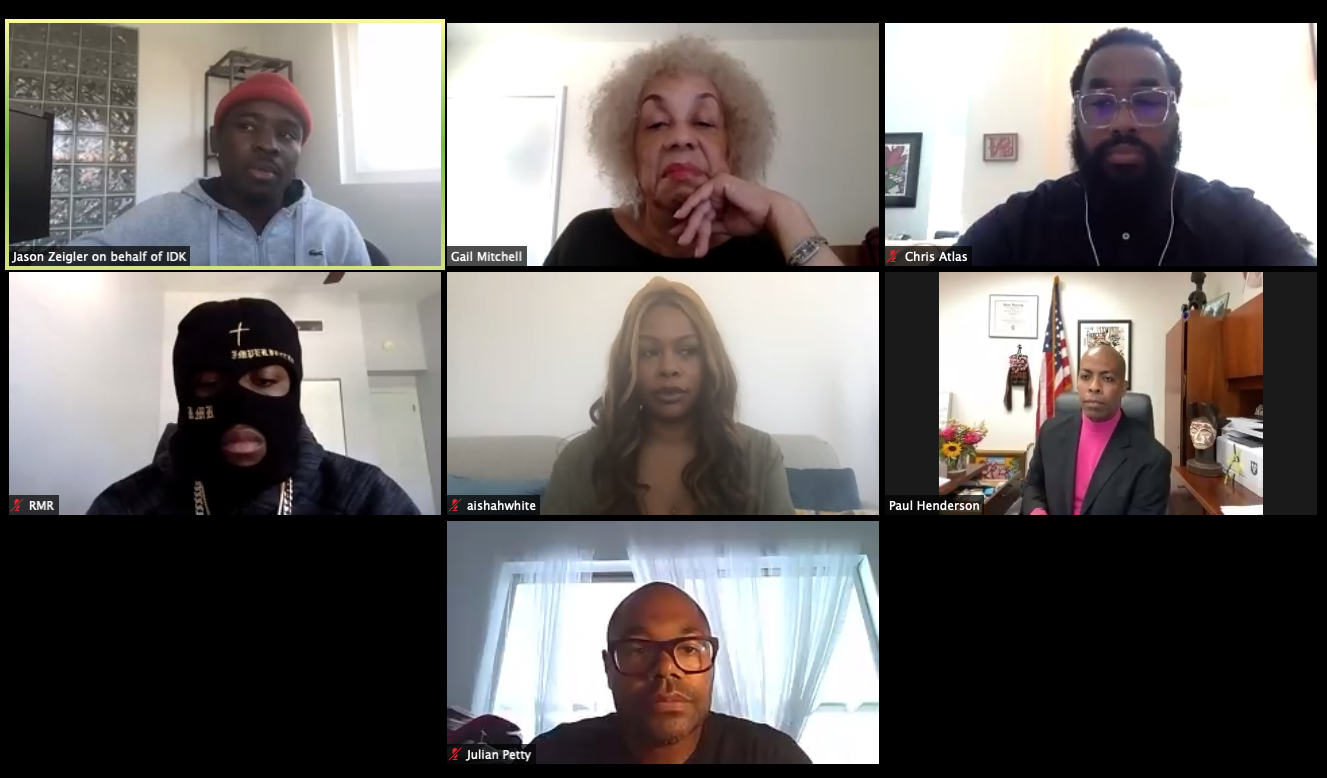Yesterday, June 4, Warner Records hosted a Zoom town hall to discuss how people both within and outside the music industry can fight for Black lives and against police brutality. The town hall, which took place amidst the nationwide protests that have followed the murder of an unarmed Black man, George Floyd, at the hands of four Minneapolis police officers, comprised six Black Warner executives, artists, and some of the label’s partners and associates. (Chika, a rapper whose retelling of her seven-hour LAPD detainment experience made headlines earlier this week, was supposed to attend but missed the event since she was out protesting.)
Panel moderator Gail Mitchell, Billboard’s executive director of R&B and hip-hop, guided the six speakers through conversations about what they’ve seen emerge so far from the protests, how art can be used to foment change, why the ongoing conversations about the history of Black oppression in the U.S. matter, and what everyone present can do to make a difference. Musician RMR, who traveled from Los Angeles to Minneapolis to protest alongside a “melting pot” of citizens, said protesters agree that “justice hasn’t been served” and that Black people “have been struggling for more than four hundred years” (Americans first began kidnapping Africans and forcing them into slavery in the seventeenth century).
Rapper IDK said the current uprising feels special because, unlike in the past, “other races, especially white people” have spoken bluntly about the “systematic oppression that we’ve been dealing with as Black people.” Both IDK and RMR said that they have previously addressed systematic racism in their music and that the ongoing protests have inspired them to do so even more.
Paul Henderson, Director of San Francisco’s Department of Police Accountability, said that musicians continuing to discuss Black liberation in their music is vital. “People are influenced by hearing the artists that they know and admire” discuss social issues, Henderson said. He also noted that “the impact is conversations like this so that people feel…justified in doing something and taking action” and “doing more than staying silent and watching it.” Although he said “these conversations raise awareness” that translates into action, “awareness is not justice. Action translates into justice.”
To that end, Julian Petty, executive vice president and head of business and legal affairs for Warner Records, advocated for record labels such as Warner “allocating and dedicating resources…and ensuring that money gets to the right places where real change can happen on the ground level.” Petty also said that, for Warner executives such as himself and co-panelists Aishah White and Chris Atlas, “One of the most important things we can do is just have hard conversations. [We] are in a unique position to speak to other high-level executives throughout the entire organization and have real discussions with them.”
“A lot of artists that get signed come from poverty, so with that, there’s this lack of education on what being signed to a record label actually is and what you’re giving up… Even if you sign an artist, there should be more effort in educating them afterward, too.” — IDK
White, Warner’s senior vice president of media and strategic development, echoed Petty’s sentiments and took them a step further. “We need to be focused on organizing on…an industry level,” she said. Uniting with “people who are like-minded, who have the same goals in mind, who can share resources and come with a plan of action” is key, she said, as is implementing programs that “cater to the Black community and people of color, from our internship programs to grooming executives to artist programs that connect with inner-city youth.” Such programs could potentially help to reverse the industry-wide racism that, as last year’s “Old Town Road” Billboard controversy showed, is just as endemic today as it has always been. Not long after White’s comments, several panel attendees flooded the Zoom conversation’s Chat tool to say they would gladly mentor young people of color.
IDK suggested that record labels insulate their artists from widespread music industry racism by simply educating them about what signing to a label means. “A lot of artists that get signed come from poverty,” he said, “so with that, there’s this lack of education on what being signed to a record label actually is and what you’re giving up… Even if you sign an artist, there should be more effort in educating them afterward, too.” RMR appeared hopeful that these changes could be implemented: “I feel like a lot of [executives] are stepping it up,” he said.
Toward the end of the panel, Chris Atlas, Warner’s senior vice president and head of urban marketing, mentioned that the June 4 town hall would be the first of many, and Mitchell noted that future town halls would discuss Black mental health, Black LGBTQ+ issues (“Queer women are at the helm of the Black Lives Matter movement,” she said), and other viewer questions. Henderson said that viewers don’t have to wait until then to make an impact. “The people that are just listening to this conversation can make a difference today by putting these conversations and others on their social media,” he said, “so that more people are informed as to what’s important and what they can do.” FL







